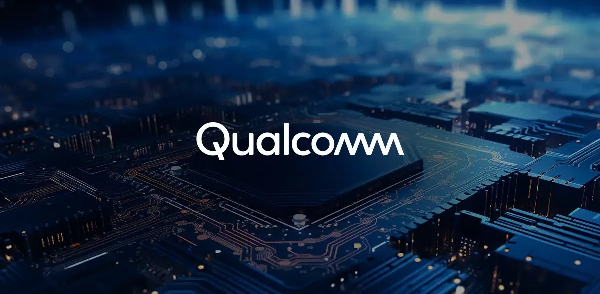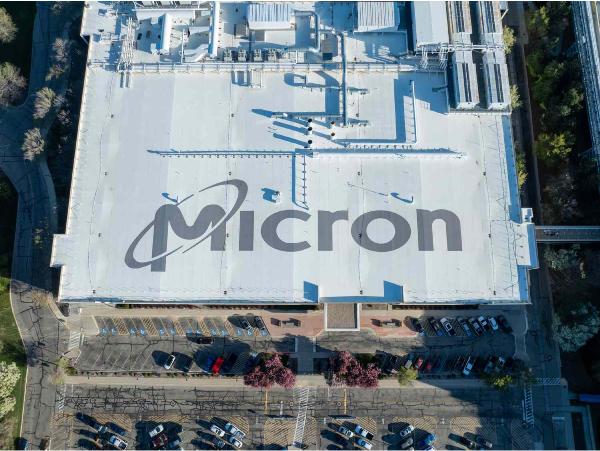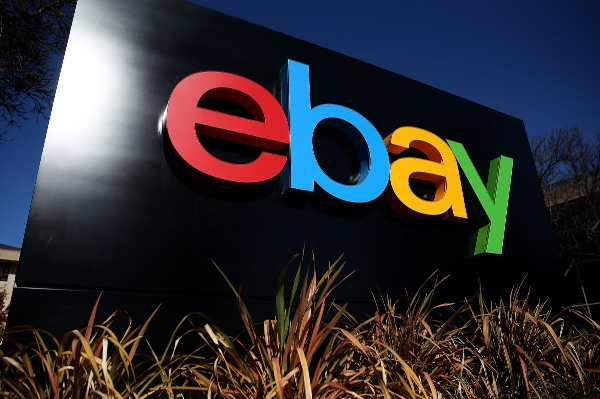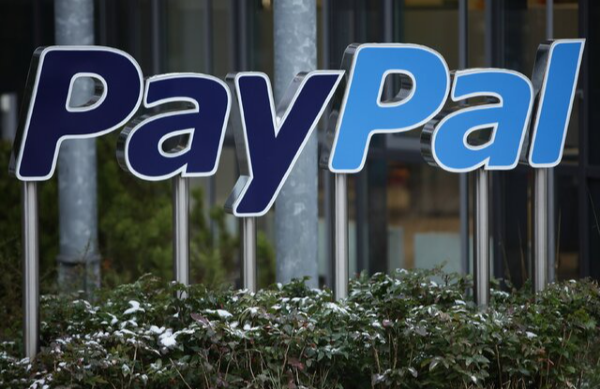What is Blockchain?: Definition and Explanation
Blockchain is a decentralized digital ledger that revolutionizes how transactions are recorded and verified. Unlike traditional centralized systems, blockchain operates across a network of computers, ensuring that data remains transparent, secure, and immutable. Each participant in the blockchain network has access to the same ledger, eliminating the need for intermediaries and reducing the risk of data breaches.
At its core, blockchain structures data into blocks, each containing a record of transactions. These blocks are cryptographically secured and linked in sequential order to form a continuous chain. This unique organization not only enhances data integrity but also makes it easy to trace the origins of any transaction. As new blocks are added, the chain grows, providing a historical record that is virtually tamper-proof.
What sets blockchain apart is its distributed nature, which ensures trust and transparency. If someone attempts to alter a single block, they would need to modify all subsequent blocks and achieve consensus from the entire network—a near-impossible feat. This inherent design makes blockchain highly secure and reliable, ideal for various applications, including cryptocurrency, supply chain management, and smart contracts. Its ability to foster trust without centralized control is reshaping industries worldwide.
Criteria for Selecting Top Blockchain Stocks
When evaluating blockchain stocks, financial performance remains a critical factor, contributing to 30% of the selection process. Strong revenue growth, consistent profitability, and financial stability indicate that a company is well-positioned to navigate the competitive blockchain landscape. Investors should assess the company’s ability to generate cash flow and sustain operations during market fluctuations, as these metrics reflect its overall resilience and potential for growth.
Blockchain integration, accounting for 25%, measures how effectively a company incorporates blockchain technology into its operations. Companies that actively develop, implement, or utilize blockchain solutions demonstrate their commitment to innovation. Whether through proprietary blockchain platforms or strategic applications across industries like finance and supply chains, the extent of blockchain adoption can differentiate leaders from laggards in this emerging sector.
Market potential, weighted at 20%, highlights a company’s positioning within the blockchain ecosystem. Leaders in this space often exhibit a competitive advantage, such as a robust market share or innovative technology with scalable applications. Identifying companies that target high-growth segments or have unique solutions tailored to evolving industry needs can reveal promising investment opportunities.
Partnerships and adoption (10%), regulatory environment (10%), and management and leadership (5%) collectively add further nuance to stock selection. Strategic alliances and widespread adoption of blockchain offerings are key indicators of market credibility, while a favorable regulatory landscape enhances a company’s ability to expand. Strong leadership with a visionary approach signals a firm’s capability to adapt and thrive in the dynamic blockchain sector, making these criteria essential for comprehensive analysis.
Getting Started Investing in Blockchain
Blockchain technology is revolutionizing industries by offering secure, transparent, and decentralized solutions for various applications, from financial services to supply chain management. If you're just getting started with blockchain investing, begin by researching the fundamentals—understanding how blockchain works, its key features, and its growing impact on industries. Familiarize yourself with concepts like distributed ledgers, smart contracts, and cryptocurrency to make informed investment choices. Knowledge is your greatest asset when venturing into emerging markets like blockchain, so take time to explore credible resources, attend webinars, or follow industry experts to deepen your understanding.
Once you're ready to invest, consider building a diversified portfolio of blockchain-related stocks to minimize risk and maximize potential gains. Companies offering blockchain solutions, hardware manufacturers supporting blockchain infrastructure, and even crypto stocks are worth exploring. Keep track of market trends, technological advancements, and regulatory updates to stay informed about the rapidly evolving landscape. Consulting with a financial advisor or investment professional can help tailor your strategy to your financial goals and risk tolerance. Remember, starting small and remaining patient are key, as blockchain investing often yields long-term rewards. By combining thoughtful research with a measured approach, you can confidently navigate this exciting investment frontier.
Blockchain Industry Trends and Insights
- Blockchain development is expected to generate a business value of $3.1 trillion by 2030.
- Top blockchain companies are investing heavily in research and development to improve their blockchain offerings.
- Regulatory environments are evolving to accommodate the growth of blockchain technology.
Blockchain ETFs Benefits and Risks
Blockchain ETFs (Exchange-Traded Funds) offer an excellent way to gain exposure to the growing blockchain industry while enjoying the benefits of a diversified portfolio. By pooling investments across multiple blockchain-related companies, ETFs can reduce individual stock risk and provide ease of access to the market for both novice and experienced investors. Blockchain ETFs often include holdings in companies developing blockchain solutions, infrastructure providers, and even cryptocurrency-exposed businesses. With just one investment, you can tap into a broad spectrum of blockchain innovations, making ETFs a convenient and efficient way to participate in this exciting market.
However, blockchain ETFs come with risks that investors should consider carefully. The blockchain sector is still maturing, which means market volatility can impact returns. Regulatory uncertainty, especially concerning cryptocurrencies and blockchain applications, adds another layer of complexity. Security risks are also a concern, as cyber-attacks can compromise blockchain-based systems. These factors highlight the importance of conducting thorough research and understanding the potential challenges before investing.
When exploring blockchain ETFs, it's crucial to evaluate their underlying holdings, fees, and overall strategy. Some examples of popular blockchain ETFs include:
- Amplify Transformational Data Sharing ETF (BLOK)
- and Siren Nasdaq Blockchain Economy ETF (BLCN).
Researching these options will help you understand the companies included in the fund, their exposure to blockchain technologies, and the cost structure of the ETF. Consider consulting a financial advisor to match the ETF selection to your investment goals. With thoughtful analysis and preparation, investing in blockchain ETFs can be a valuable entry point into this transformative market.
Blockchain Frequently Asked Questions
Blockchain technology has rapidly emerged as a transformative force across industries, sparking curiosity and raising many questions. Whether you're exploring blockchain for the first time or looking to deepen your understanding, FAQs can be invaluable in addressing common concerns about how blockchain works, its applications, benefits, and risks. From understanding key concepts like distributed ledgers and smart contracts to learning about its impact on finance, supply chain, and beyond, blockchain FAQs provide clarity and guidance for those eager to navigate this innovative technology.
What is blockchain and how does it work?
Blockchain is a decentralized and transparent digital ledger system that records transactions across multiple computers. Unlike traditional databases managed by central authorities, blockchain operates on a peer-to-peer network, where data is organized into blocks linked chronologically to form a chain. Each block contains a group of transactions, a timestamp, and a unique cryptographic hash that ensures security and immutability.
The process starts when a transaction is initiated; it is verified by network participants called nodes through a consensus mechanism, like Proof of Work or Proof of Stake. Once verified, the transaction is added to a block, and this block is then cryptographically linked to the previous block, creating an unalterable chain. The decentralized nature of blockchain ensures that no single entity controls the data, making it highly secure and resistant to fraud or tampering. It is widely used in industries like finance, healthcare, and logistics, revolutionizing processes with increased transparency and efficiency. Let me know if you'd like to delve deeper into its applications!
What are the different features and benefits of blockchain technology?
Blockchain technology boasts several remarkable features that set it apart from traditional systems. Its decentralization ensures that no single entity has control, promoting transparency and trust in data handling. Immutability is another key feature—once a transaction is recorded on the blockchain, it cannot be altered or deleted, making it ideal for maintaining secure records. Blockchain also relies on cryptographic security, using advanced encryption methods to safeguard data. Moreover, its consensus mechanisms, like Proof of Work or Proof of Stake, ensure transactions are verified collectively by network participants, minimizing errors and fraud. Smart contracts—self-executing agreements coded on the blockchain—add automation and efficiency to various processes.
The benefits of blockchain are just as impressive. It enhances security by reducing vulnerabilities associated with centralized systems and safeguarding sensitive information from unauthorized access. Blockchain's transparency fosters trust among stakeholders, as all transactions are publicly verifiable. It also increases efficiency by automating processes like contract execution and eliminating intermediaries, saving both time and cost. Furthermore, blockchain technology provides traceability, enabling businesses to track goods and transactions throughout supply chains seamlessly. Industries ranging from finance and healthcare to logistics and entertainment are leveraging these features to drive innovation and build smarter, more reliable systems. Let me know if you'd like examples of industries adopting blockchain!
What are the varied use cases of blockchain development by industry and application?
Blockchain technology has found applications across a wide range of industries, revolutionizing traditional processes with its decentralized and secure framework. In the finance sector, blockchain is used for faster and more secure cross-border payments, transparent asset management, and decentralized finance (DeFi) platforms. Healthcare benefits from blockchain by enabling secure sharing of patient data, ensuring the authenticity of medicines, and improving supply chain transparency for medical equipment. In supply chain management, blockchain allows real-time tracking of goods, ensuring ethical sourcing and reducing fraud.
Other industries are also leveraging blockchain's potential. For example, in real estate, blockchain simplifies property transactions by enabling smart contracts and reducing paperwork. The entertainment industry uses blockchain for transparent royalty distribution and combating piracy. Even government services are adopting blockchain for secure voting systems and efficient record-keeping. These varied use cases highlight blockchain's versatility and its ability to enhance transparency, security, and efficiency across diverse applications. Let me know if you'd like to explore any specific industry in more detail!
What are the factors and criteria one must keep in mind when choosing blockchain companies to invest in?
When selecting blockchain companies to invest in, it's essential to evaluate several key factors and criteria to make informed decisions. Start by assessing the company's technology and innovation—look for firms that are pioneering blockchain solutions or have a strong track record of implementing blockchain in practical applications. Financial health is another critical aspect; analyze the company's revenue growth, profitability, and ability to sustain operations in a competitive market. Additionally, consider the management team and their expertise in blockchain technology, as leadership plays a vital role in driving innovation and success.
Market trends and regulatory environment are equally important. Blockchain is subject to evolving regulations, so investing in companies that demonstrate compliance and adaptability is crucial. Evaluate the company's partnerships and collaborations, as strategic alliances with other tech leaders or industries can indicate growth potential. Lastly, review the company's long-term vision and scalability—invest in firms that have clear plans for expanding their blockchain applications and adapting to future technological advancements. By carefully analyzing these factors, you can identify blockchain companies with strong growth prospects and minimize investment risks. Let me know if you'd like examples of companies that meet these criteria!
Key Takeaways
Blockchain technology is transforming industries with its remarkable potential for growth and innovation, presenting an exciting frontier for investors. By investing in blockchain stocks, you can tap into this dynamic field and gain exposure to companies driving advancements in decentralization, transparency, and efficiency. A diversified portfolio of blockchain stocks can help balance risks and maximize opportunities, especially as the industry continues to evolve.
Before making investment decisions, it's crucial to research and understand the underlying technology and the companies involved. Staying informed about market trends and regulatory changes will also help you make strategic choices. Remember to start small and maintain patience, as blockchain investing is a long-term strategy. With thorough preparation and a measured approach, you can confidently explore the vast opportunities this transformative technology offers.





























What is Blockchain?: Definition and Explanation
Blockchain is a decentralized digital ledger that revolutionizes how transactions are recorded and verified. Unlike traditional centralized systems, blockchain operates across a network of computers, ensuring that data remains transparent, secure, and immutable. Each participant in the blockchain network has access to the same ledger, eliminating the need for intermediaries and reducing the risk of data breaches.
At its core, blockchain structures data into blocks, each containing a record of transactions. These blocks are cryptographically secured and linked in sequential order to form a continuous chain. This unique organization not only enhances data integrity but also makes it easy to trace the origins of any transaction. As new blocks are added, the chain grows, providing a historical record that is virtually tamper-proof.
What sets blockchain apart is its distributed nature, which ensures trust and transparency. If someone attempts to alter a single block, they would need to modify all subsequent blocks and achieve consensus from the entire network—a near-impossible feat. This inherent design makes blockchain highly secure and reliable, ideal for various applications, including cryptocurrency, supply chain management, and smart contracts. Its ability to foster trust without centralized control is reshaping industries worldwide.
Criteria for Selecting Top Blockchain Stocks
When evaluating blockchain stocks, financial performance remains a critical factor, contributing to 30% of the selection process. Strong revenue growth, consistent profitability, and financial stability indicate that a company is well-positioned to navigate the competitive blockchain landscape. Investors should assess the company’s ability to generate cash flow and sustain operations during market fluctuations, as these metrics reflect its overall resilience and potential for growth. Blockchain integration, accounting for 25%, measures how effectively a company incorporates blockchain technology into its operations. Companies that actively develop, implement, or utilize blockchain solutions demonstrate their commitment to innovation. Whether through proprietary blockchain platforms or strategic applications across industries like finance and supply chains, the extent of blockchain adoption can differentiate leaders from laggards in this emerging sector. Market potential, weighted at 20%, highlights a company’s positioning within the blockchain ecosystem. Leaders in this space often exhibit a competitive advantage, such as a robust market share or innovative technology with scalable applications. Identifying companies that target high-growth segments or have unique solutions tailored to evolving industry needs can reveal promising investment opportunities. Partnerships and adoption (10%), regulatory environment (10%), and management and leadership (5%) collectively add further nuance to stock selection. Strategic alliances and widespread adoption of blockchain offerings are key indicators of market credibility, while a favorable regulatory landscape enhances a company’s ability to expand. Strong leadership with a visionary approach signals a firm’s capability to adapt and thrive in the dynamic blockchain sector, making these criteria essential for comprehensive analysis.
Getting Started Investing in Blockchain
Blockchain technology is revolutionizing industries by offering secure, transparent, and decentralized solutions for various applications, from financial services to supply chain management. If you're just getting started with blockchain investing, begin by researching the fundamentals—understanding how blockchain works, its key features, and its growing impact on industries. Familiarize yourself with concepts like distributed ledgers, smart contracts, and cryptocurrency to make informed investment choices. Knowledge is your greatest asset when venturing into emerging markets like blockchain, so take time to explore credible resources, attend webinars, or follow industry experts to deepen your understanding.
Once you're ready to invest, consider building a diversified portfolio of blockchain-related stocks to minimize risk and maximize potential gains. Companies offering blockchain solutions, hardware manufacturers supporting blockchain infrastructure, and even crypto stocks are worth exploring. Keep track of market trends, technological advancements, and regulatory updates to stay informed about the rapidly evolving landscape. Consulting with a financial advisor or investment professional can help tailor your strategy to your financial goals and risk tolerance. Remember, starting small and remaining patient are key, as blockchain investing often yields long-term rewards. By combining thoughtful research with a measured approach, you can confidently navigate this exciting investment frontier.
Blockchain Industry Trends and Insights
Blockchain ETFs Benefits and Risks
Blockchain ETFs (Exchange-Traded Funds) offer an excellent way to gain exposure to the growing blockchain industry while enjoying the benefits of a diversified portfolio. By pooling investments across multiple blockchain-related companies, ETFs can reduce individual stock risk and provide ease of access to the market for both novice and experienced investors. Blockchain ETFs often include holdings in companies developing blockchain solutions, infrastructure providers, and even cryptocurrency-exposed businesses. With just one investment, you can tap into a broad spectrum of blockchain innovations, making ETFs a convenient and efficient way to participate in this exciting market.
However, blockchain ETFs come with risks that investors should consider carefully. The blockchain sector is still maturing, which means market volatility can impact returns. Regulatory uncertainty, especially concerning cryptocurrencies and blockchain applications, adds another layer of complexity. Security risks are also a concern, as cyber-attacks can compromise blockchain-based systems. These factors highlight the importance of conducting thorough research and understanding the potential challenges before investing.
When exploring blockchain ETFs, it's crucial to evaluate their underlying holdings, fees, and overall strategy. Some examples of popular blockchain ETFs include:
Researching these options will help you understand the companies included in the fund, their exposure to blockchain technologies, and the cost structure of the ETF. Consider consulting a financial advisor to match the ETF selection to your investment goals. With thoughtful analysis and preparation, investing in blockchain ETFs can be a valuable entry point into this transformative market.
Blockchain Frequently Asked Questions
Blockchain technology has rapidly emerged as a transformative force across industries, sparking curiosity and raising many questions. Whether you're exploring blockchain for the first time or looking to deepen your understanding, FAQs can be invaluable in addressing common concerns about how blockchain works, its applications, benefits, and risks. From understanding key concepts like distributed ledgers and smart contracts to learning about its impact on finance, supply chain, and beyond, blockchain FAQs provide clarity and guidance for those eager to navigate this innovative technology.
What is blockchain and how does it work?
Blockchain is a decentralized and transparent digital ledger system that records transactions across multiple computers. Unlike traditional databases managed by central authorities, blockchain operates on a peer-to-peer network, where data is organized into blocks linked chronologically to form a chain. Each block contains a group of transactions, a timestamp, and a unique cryptographic hash that ensures security and immutability.
The process starts when a transaction is initiated; it is verified by network participants called nodes through a consensus mechanism, like Proof of Work or Proof of Stake. Once verified, the transaction is added to a block, and this block is then cryptographically linked to the previous block, creating an unalterable chain. The decentralized nature of blockchain ensures that no single entity controls the data, making it highly secure and resistant to fraud or tampering. It is widely used in industries like finance, healthcare, and logistics, revolutionizing processes with increased transparency and efficiency. Let me know if you'd like to delve deeper into its applications!
What are the different features and benefits of blockchain technology?
Blockchain technology boasts several remarkable features that set it apart from traditional systems. Its decentralization ensures that no single entity has control, promoting transparency and trust in data handling. Immutability is another key feature—once a transaction is recorded on the blockchain, it cannot be altered or deleted, making it ideal for maintaining secure records. Blockchain also relies on cryptographic security, using advanced encryption methods to safeguard data. Moreover, its consensus mechanisms, like Proof of Work or Proof of Stake, ensure transactions are verified collectively by network participants, minimizing errors and fraud. Smart contracts—self-executing agreements coded on the blockchain—add automation and efficiency to various processes.
The benefits of blockchain are just as impressive. It enhances security by reducing vulnerabilities associated with centralized systems and safeguarding sensitive information from unauthorized access. Blockchain's transparency fosters trust among stakeholders, as all transactions are publicly verifiable. It also increases efficiency by automating processes like contract execution and eliminating intermediaries, saving both time and cost. Furthermore, blockchain technology provides traceability, enabling businesses to track goods and transactions throughout supply chains seamlessly. Industries ranging from finance and healthcare to logistics and entertainment are leveraging these features to drive innovation and build smarter, more reliable systems. Let me know if you'd like examples of industries adopting blockchain!
What are the varied use cases of blockchain development by industry and application?
Blockchain technology has found applications across a wide range of industries, revolutionizing traditional processes with its decentralized and secure framework. In the finance sector, blockchain is used for faster and more secure cross-border payments, transparent asset management, and decentralized finance (DeFi) platforms. Healthcare benefits from blockchain by enabling secure sharing of patient data, ensuring the authenticity of medicines, and improving supply chain transparency for medical equipment. In supply chain management, blockchain allows real-time tracking of goods, ensuring ethical sourcing and reducing fraud.
Other industries are also leveraging blockchain's potential. For example, in real estate, blockchain simplifies property transactions by enabling smart contracts and reducing paperwork. The entertainment industry uses blockchain for transparent royalty distribution and combating piracy. Even government services are adopting blockchain for secure voting systems and efficient record-keeping. These varied use cases highlight blockchain's versatility and its ability to enhance transparency, security, and efficiency across diverse applications. Let me know if you'd like to explore any specific industry in more detail!
What are the factors and criteria one must keep in mind when choosing blockchain companies to invest in?
When selecting blockchain companies to invest in, it's essential to evaluate several key factors and criteria to make informed decisions. Start by assessing the company's technology and innovation—look for firms that are pioneering blockchain solutions or have a strong track record of implementing blockchain in practical applications. Financial health is another critical aspect; analyze the company's revenue growth, profitability, and ability to sustain operations in a competitive market. Additionally, consider the management team and their expertise in blockchain technology, as leadership plays a vital role in driving innovation and success.
Market trends and regulatory environment are equally important. Blockchain is subject to evolving regulations, so investing in companies that demonstrate compliance and adaptability is crucial. Evaluate the company's partnerships and collaborations, as strategic alliances with other tech leaders or industries can indicate growth potential. Lastly, review the company's long-term vision and scalability—invest in firms that have clear plans for expanding their blockchain applications and adapting to future technological advancements. By carefully analyzing these factors, you can identify blockchain companies with strong growth prospects and minimize investment risks. Let me know if you'd like examples of companies that meet these criteria!
Key Takeaways
Blockchain technology is transforming industries with its remarkable potential for growth and innovation, presenting an exciting frontier for investors. By investing in blockchain stocks, you can tap into this dynamic field and gain exposure to companies driving advancements in decentralization, transparency, and efficiency. A diversified portfolio of blockchain stocks can help balance risks and maximize opportunities, especially as the industry continues to evolve.
Before making investment decisions, it's crucial to research and understand the underlying technology and the companies involved. Staying informed about market trends and regulatory changes will also help you make strategic choices. Remember to start small and maintain patience, as blockchain investing is a long-term strategy. With thorough preparation and a measured approach, you can confidently explore the vast opportunities this transformative technology offers.